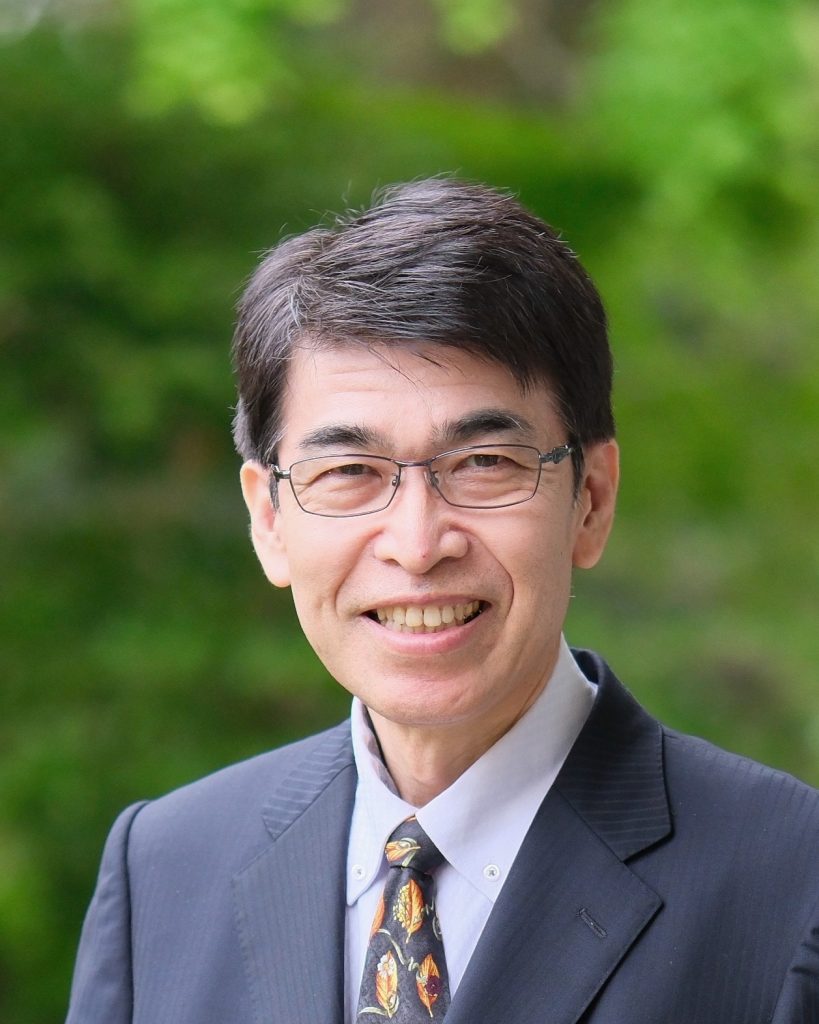Message from the Dean, Faculty of Medicine and Health Sciences
Yamaguchi University Faculty of Medicine and Health Sciences is located in Ube City, a “city of greenery, flowers, and sculptures,” which was Number 1 in the 2020 Ranking of Towns People Want To Live In. Yamaguchi City, where students spend their first year, was ranked third among destinations worldwide in the “52 Places to Go in 2024,” published by the New York Times in the United States. Yamaguchi Prefecture is the birthplace of the Meiji Restoration. The foundation of modern Japan was laid by the aspirants who studied at “Shoukasonjuku,” a school presided over by Shoin Yoshida, a thinker at the end of the Edo period. Yamaguchi University Faculty of Medicine and Health Sciences is also full of forward-thinking spirit and has created many of the examination and treatment methods that are standard today. After being founded as a prefectural medical school in 1944, the school became a prefectural medical college in 1949 and was transferred to a national university in 1964, becoming the Yamaguchi University School of Medicine. In 2000, the School of Health Sciences was established, and the Department of Nursing and Laboratory Technology Science established the current structure.
As a center of medical education and research, Yamaguchi University Faculty of Medicine and Health Sciences has trained many doctors, medical researchers, and health administrators and has served to provide high-quality medical care and contribute to the development of medicine. The Faculty of Medicine and Health Sciences has been committed to the following missions and goals: Teach specialized knowledge and skills in medical sciences and treatments and foster a rich human character; Foster the ability to cope with changes in medical sciences and treatments, and the physician’s changing role in society; Foster the ability to cope with the internationalization of medical sciences and treatments; and Actively contribute to the advancement of knowledge and skills in medical sciences and treatments, and cultivate creative human resources.

Dean, Faculty of Medicine and Health Sciences
Yamaguchi University
The important things to be acquired in the school of medicine and health sciences are knowledge and skills to perform advanced healthcare and treatment. Furthermore, modern medicine is changing as a discipline that deals with new and unprecedented bioethics, such as regenerative medicine and prenatal care. The doctor-patient relationship in medical care also changes to mutual participation, in which the doctor and patient discuss and decide on the best treatment until the patient fully understands and cooperates in medical treatment, and further to patient-centered medicine. For this reason, we aim to train physicians with medical skills and a high level of humanity.
Yamaguchi University has several unique systems to meet the rapidly changing demands of medicine. One of them is the medical application of AI. AI and systems biology have made remarkable progress in recent years, and their application to medical care has already begun. Promoting medical research that handles big data and training medical personnel have become significant issues for universities. For this reason, Yamaguchi University was the first medical school in Japan to establish the Department of Systems Bioinformatics, a course specializing in AI, and also established the AI Systems Medicine Research and Training Center (AISMEC). The AI systems we have built up to date allow us to analyze medical big data and develop preventive and therapeutic methods from new perspectives. We have established simulators for clinical practice and digital medical education equipment in education. We are building a new educational plan using digital transformation and other technologies to foster human resources with medical skills and knowledge that can be used immediately.
We offer the “Self-Development Course” as a curriculum to foster international human resources who can promote global medical care and researchers who can conduct original research. It is a practical medical research participatory education in which students select and belong to their laboratory, write papers, and present at academic conferences. This course is one of the longest in the nation. It allows students to experience the importance and interest of medical research by conducting full-scale basic research over six months. In the Self-Development Course, students can choose to work not only on campus but also at universities and research institutes in Japan and overseas. The number of overseas research centers we collaborate with is located in about ten countries, and the number of institutions has increased to more than 20. The School of Health Sciences has established the Asia-Pacific Alliance of Health Leaders (APAHL), consisting of Chiang Mai University, Mahidol University, the University of Hong Kong, and Yamaguchi University, to foster nursing and health sciences leaders. In addition, Nursing and Health Sciences, the international journal in nursing and health sciences, has been published for over 20 years.
The Faculty of Medicine and Health Sciences will continue to develop human resources to lead a rapidly changing society, build a flexible system to respond to emergencies such as pandemics, and achieve world-class research results.
Tsuyoshi Tanabe, MD, PhD
Dean, Faculty of Medicine and Health Sciences
Yamaguchi University